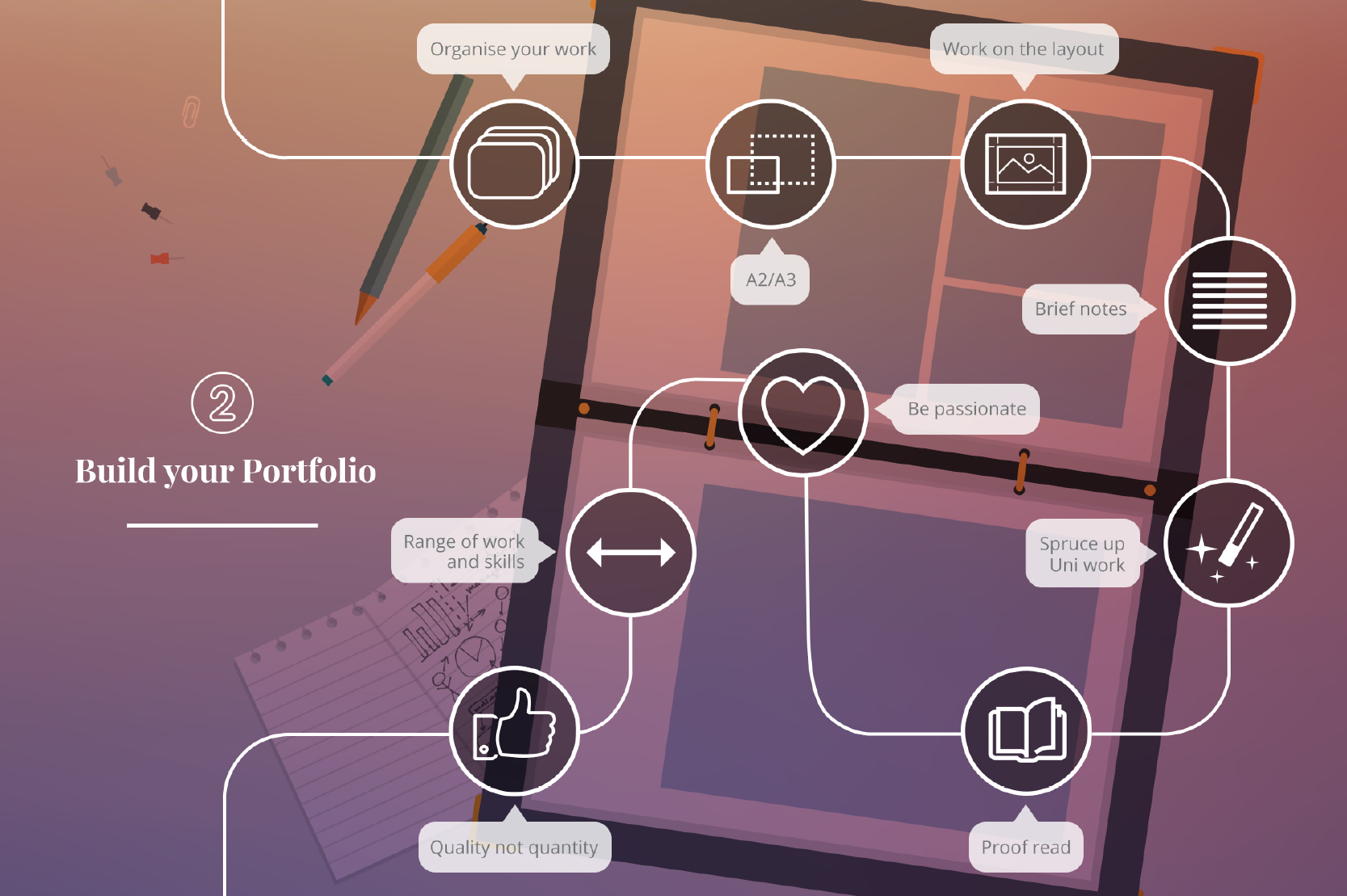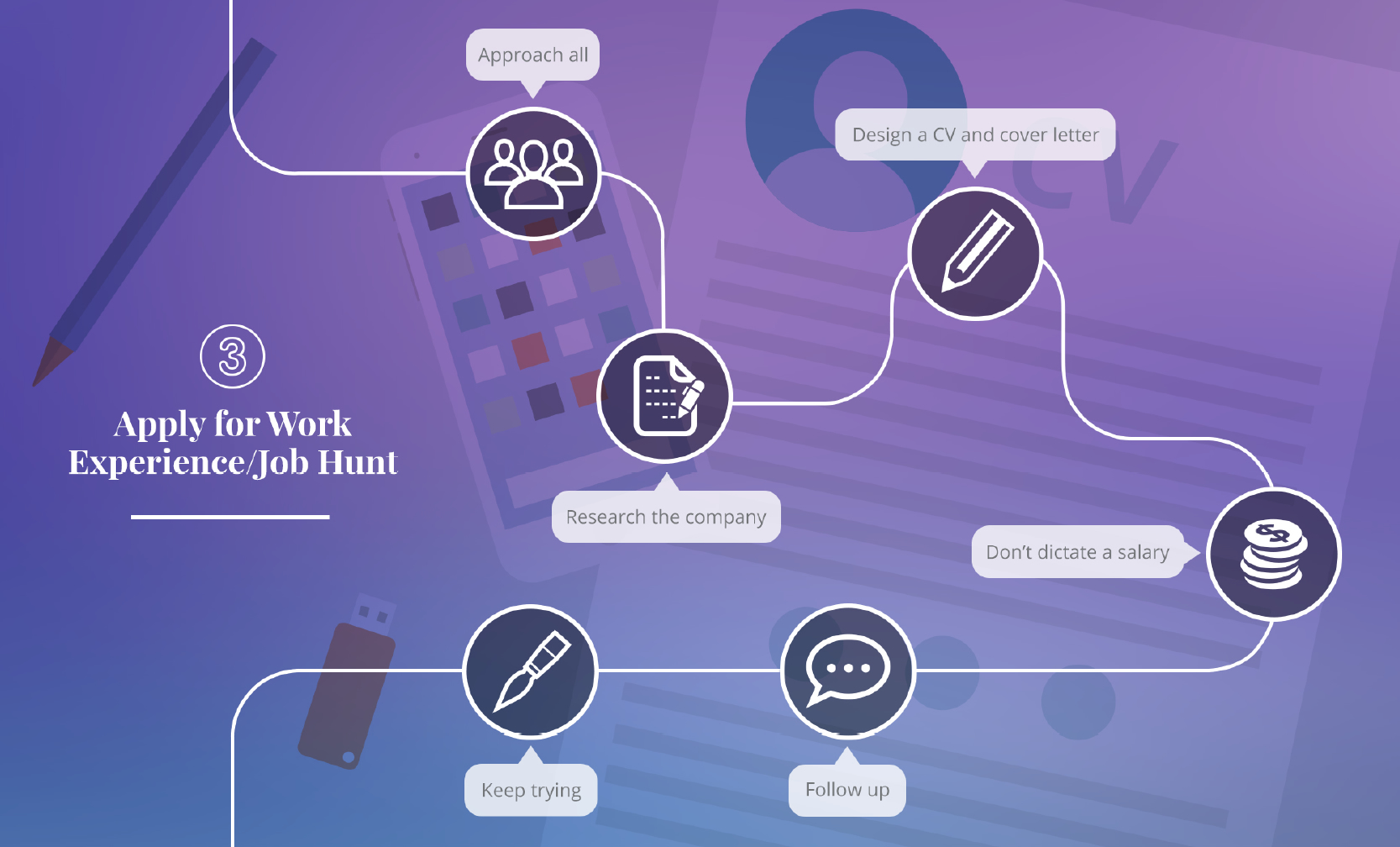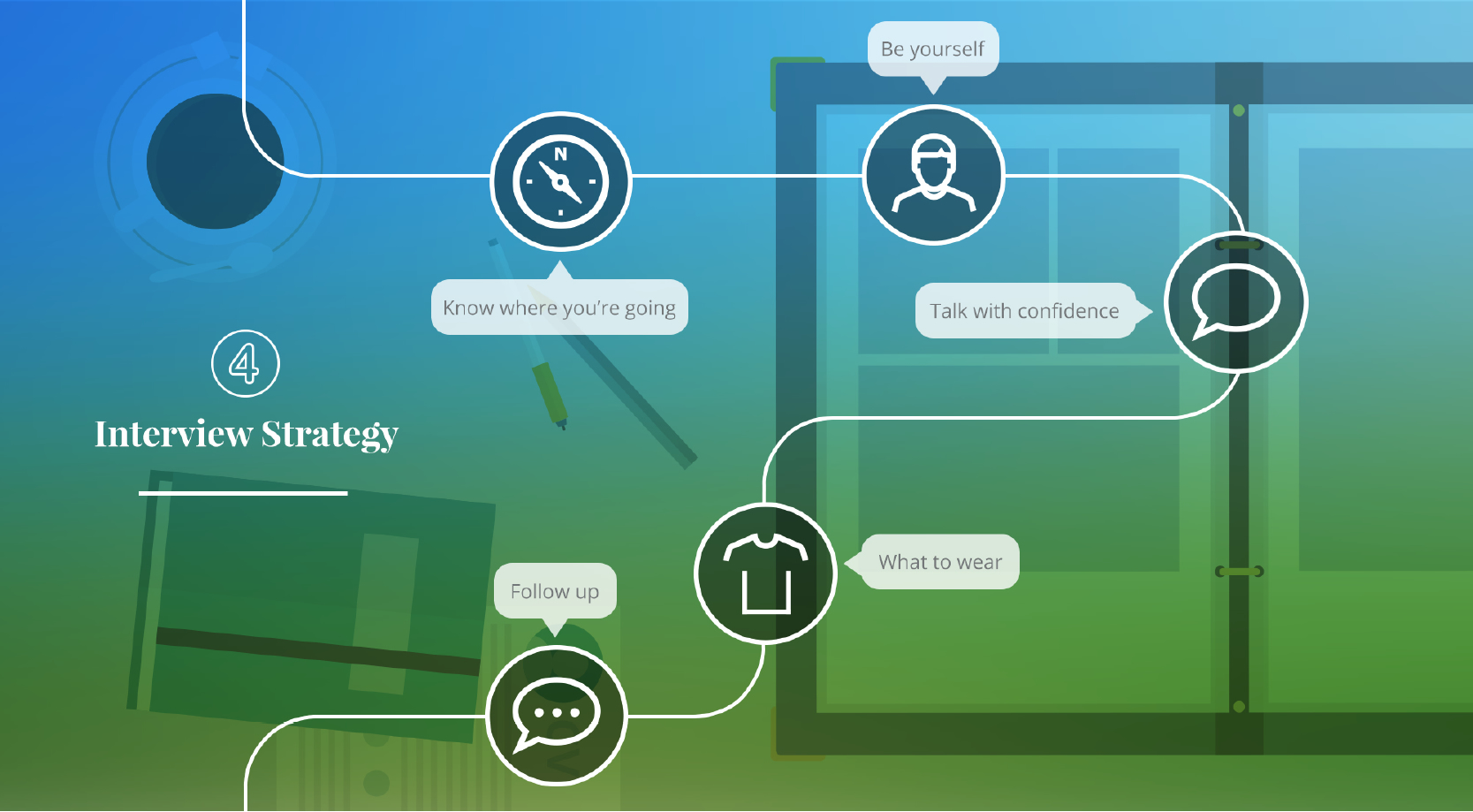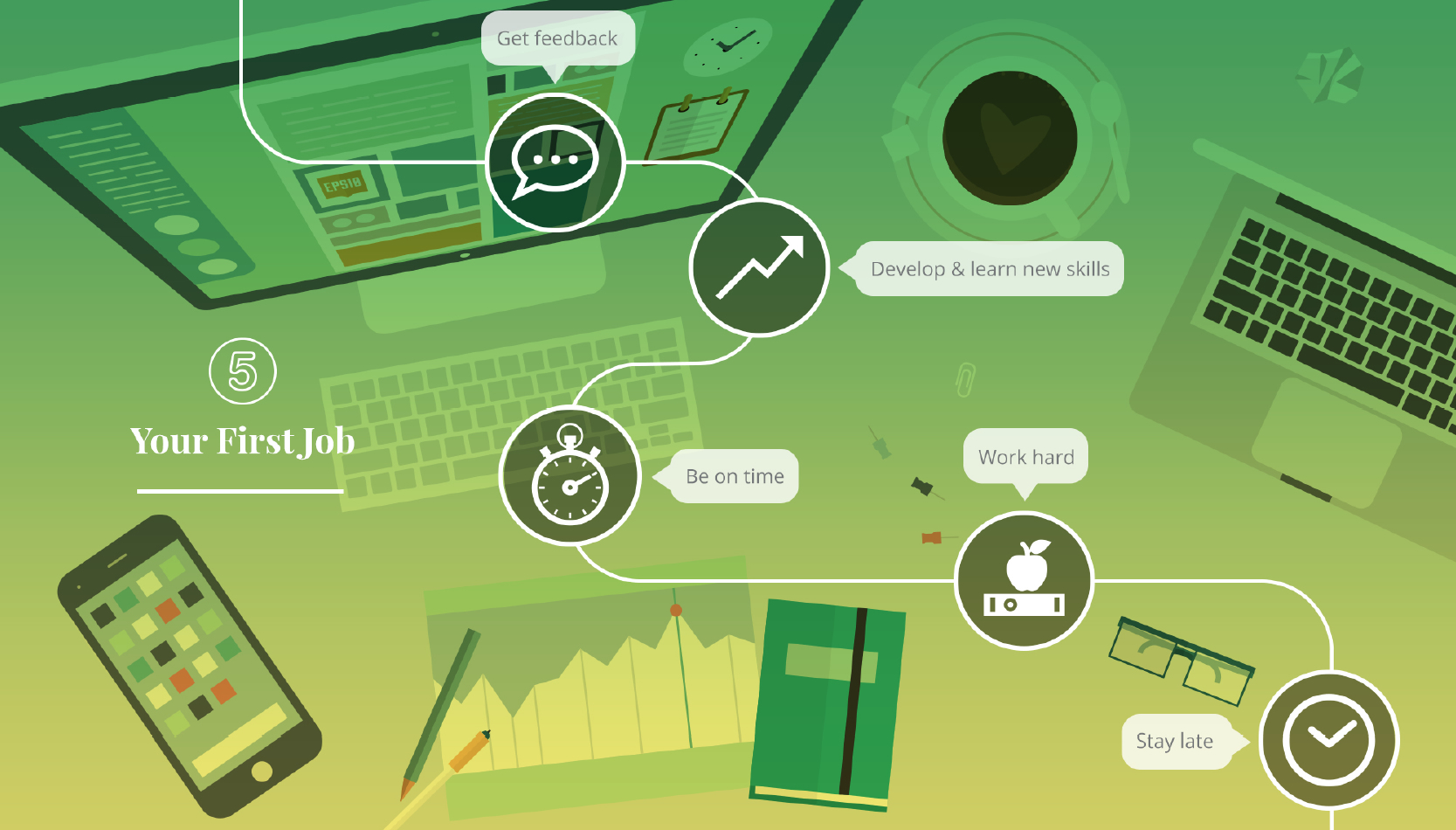So, you’re looking for a career in design? You dream about working for a leading design agency? You want it to be the absolute truth when you say to people, “I’m a designer”? Well, all these things can happen if you follow these simple steps.
I have almost 20 years experience in the design industry. My team and I have taken junior designers and transformed them into heavyweights in just a few years. Recently, we’ve successfully put seven graduates into full-time design careers in an exceptionally competitive industry, in just ten weeks.
If you’re serious about being a designer, then this guide is for you. So, read on!
1. Be Prepared
Well, it all starts here doesn’t it? You must absolutely BE PREPARED. Be prepared to work long and hard. Be prepared for some late nights. Be prepared for your work to be judged with a fine tooth comb. Be prepared to get it wrong, then get it wrong again, but this time in front of a room full of people, before you then get it right. Be prepared for someone to be better than you. Be prepared to learn and move with the times. This, however, is just the start.
If what I’ve just said here worries you, then have a long think about if a career in the design industry is really for you. If you’re up for it, then read on…
Here’s a checklist of some things you should be doing right now. If you’re not doing 100% of these, make it happen.
- Research the industry
- Work hard
- Work on personal projects
- Enter design competitions
- Help out family and friends with free design work
- Create a personal identity
- Do an internship or find work experience
2. Build Your Portfolio
You’re nothing without a great portfolio. This is possibly your single ticket into the industry. Think about how many portfolios a Creative Director or Studio Manager sees. I’ve literally seen hundreds.
You’re up against the rest of the world, so your portfolio has to be exceptional. There are a few ways to do this, so listen up.
Organise your work. Your portfolio should read like an emotion. Start off on a high with a great piece of work, something you’re proud of – maybe something for a well-known brand. Be eloquent about it. Live and breathe it. Then follow with some other work that shows variety and diversity.
In the middle of your portfolio, your work should hit another high. Keep their interest. Remember they’re likely to be seeing at least a dozen candidates, so you can’t afford to lose their attention. Then, after a few more pieces of really competent work, finish on the ultimate high. You want them to remember you, and you certainly want them to be talking about you after you’ve left.
Organise Your Work – Organise your work into a good order with eight to ten pieces as a maximum. Make number one amazing, number five as amazing, and number ten the best!
Size – Think about how this comes across; how several people around a table can interact with your portfolio. It should be either A2 or A3. Use individual sheets that can easily be passed around and discussed. Present it in a nice clean case. Show that you care and that you’re keen to impress.
Layout – Make the layout of every single piece of work consistent. Show uniformity. Show you know your craft. Also, make sure you have photographed your work to showcase it at its best.
Brief Notes – Make a list of key points on each project that you want to get across. Learn them and articulate them well.
Spruce Up Uni Work – Revisit some projects that you did months ago that you were pleased with but can do better with now.
Proof Read – Common mistake of designers: I’ve honestly never met one that can spell. I think it’s a creative thing! Regardless, check your work and have someone else check it too.
Be Passionate – Always show work you are passionate about and can speak confidently about it. Demonstrate to the prospective employer that you really understood the project, delivered what the client was looking for, and be able to showcase the great results this work achieved!
Show Variety – Make sure you show a range of work and skills. Vary the work. You’re a designer, after all, so you should be able to adapt your skills from corporate literature to packaging, advertising and website design. Don’t miss anything out.
Quality, not Quantity – Cliché, but this says it all!
3. Apply for Work Experience/Job Hunt
Apply for Work Experience
The whole purpose of this page is to help those of you that really want to make it. It is seriously difficult to get into the design industry. Therefore, you have to give yourself every chance. You’re likely to be up against other designers with a year or more of experience under their belt, so you must put in the extra effort and give it your all.
Employers, although advertising for a junior role, (which is probably what you’re going for) will still be looking for experience. This might baffle you slightly at first, as I’m sure you realise, most young people have been too immersed in their studies to have time for formal work. Additionally, getting this work to start with can be near impossible since the employer desires previous experience. It’s a catch 22! To get the work, you need experience and to get experience, you need work.
However, fear not, as there is a genius solution! That is to offer your time for free. Many companies will happily accept your generous offer, and in the process you are building valuable experience and a great portfolio.
As I’ve mentioned above, we’ve put seven University leavers into full-time design careers, each of them being awarded either the first or second job they went for. This unequivocally shows the power of good work experience.
Each of our work experience learners gave their time up for free for ten weeks. Within this time, they got a true insight into the industry, they got to work on some leading UK and international brands, and most importantly, learnt to do it right to a commercial standard. Their ultimate reward was a job-winning portfolio and the job itself followed quickly after. It doesn’t get much better than that does it?
Job Hunting strategy
We’ve always advised our work experience students to start gradually looking for jobs at week seven. At this time, you’ll be gaining confidence and have 40-50% of your portfolio ready and will be ready to implement a strategy.
You simply cannot apply for the odd job as it pops up. Outside of the obvious jobs advertised, you’ll need to devise a strategy to target every agency that you would like to work for in your chosen area, and also further afield.
- Make a list of companies you aspire to and would really like to work for.
- Get the correct name of the person to send your abbreviated PDF portfolio to.
- Record the date you send your CV and portfolio to them.
- Have a follow-up procedure. Don’t just rely on them calling you up. They are busy people with demanding jobs to do.
- Keep trying without being a pest.
Follow these simple steps and you never know where things may lead. Hopefully, it will be great things! It’s not unheard of for an agency to give someone a chance with a good portfolio, just because of timing.
- Design a creative CV and cover letter:
- Make it relevant, talk about the role you are applying for and why you would be perfect for the job
- Praise the company and show you are passionate about working there, and have done your research
- Make sure you include your contact details
- Approach all companies even if they are not advertising
- Research the company
- Don’t dictate a salary. Say you want a chance to prove yourself
4. Interview Strategy
So, you’ve studied at University for three years, you’ve given ten weeks of your time to an agency to help build you a job-winning portfolio and now you’ve got an interview. Now is not the time to blow it because you’re not prepared. You’ll be asked what you know about the company interviewing you. You must read their website front to back, you must know their work and their clients, you must be specific and mention projects you really liked and why.
Know Where You Are Going – If you’re not sure, do a recce or at least give yourself plenty of time to get there in case of unforeseen circumstances. Always make provisions.
Be Yourself – Don’t be someone you’re not. Always be yourself and let your personality shine through.
What to Wear – Not too casual, not too smart. This is a trendy business so make an effort to portray this.
How to Present Your Portfolio – Know each piece of work inside out and speak with confidence. Present your portfolio to your interviewer and talk them through the journey of your work.
Follow Up – Follow up if you’ve not heard for a couple of weeks. If you’re not successful, ask for feedback. Learn from it, make adjustments and move on.
5. Your First Job
We have reached the end of our training! I hope you’ve enjoyed and have been motivated by the information in this guide. I know I had fun writing it, with the satisfaction in mind of it helping thousands of people to achieve their dreams, including you!
Just by reading this through to the end, you have already taken the first step on your pathway to success. Apply the information I have taught you and you will achieve your goals.
Here’s my last bit of advice when you’re in your first job.
1. Continually ask for feedback if you’re not being told how you’re doing.
2. Continue to develop and learn new skills.
And lastly, and most importantly
3. Get in on time, work hard, stay late… that is all.
Good Luck!





